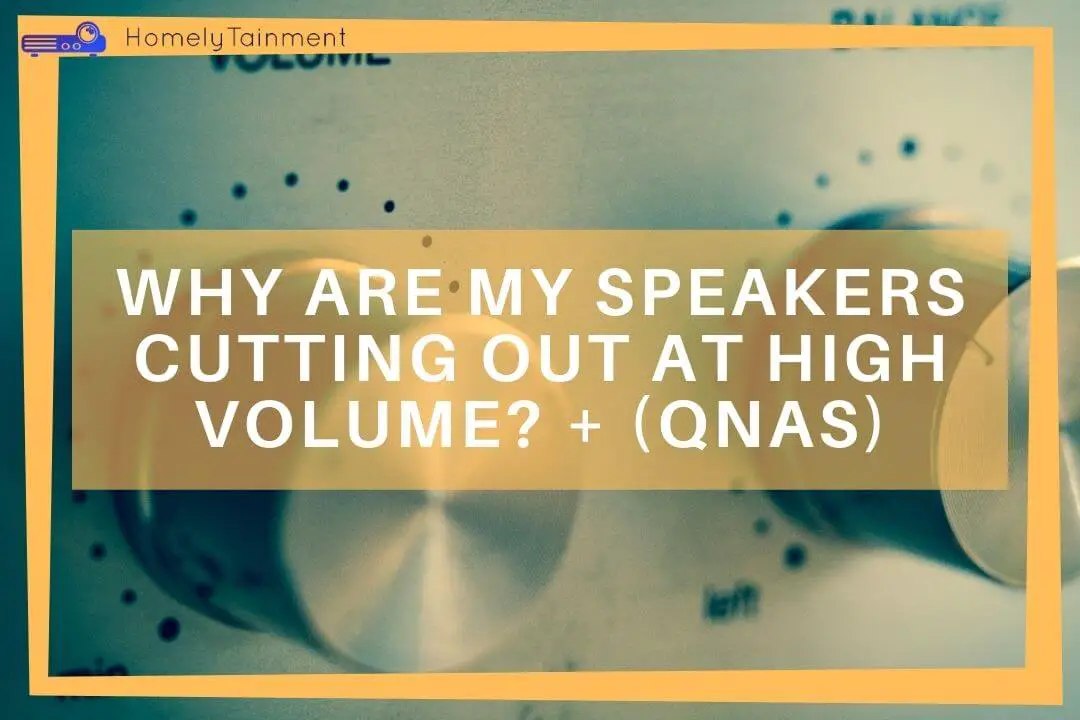
Homelytainment earn commissions (at no additional cost to you) if you purchase products from retailers after clicking on a link from our site.
The power ratings and impedance of any speaker play a significant role in smooth running. Mismatching these numbers with the receiver or amplifier can bring serious threats. But why are speakers cut out at high volumes?
At A Glance: Speakers cut out on high volume because it does not get the impedance from the receiver or amplifier with which they are rated. Let’s suppose your speakers are rated as 4 Ohms and they are getting 8 Ohms from the receiver then this issue will be never solved.
Keep reading because we will discuss the best scenarios and many more related questions. A lot of times we make mistakes without knowing them. Because the home theater world is not easy to understand. Still, remember the days when my friend was convincing me to have a theater room. The jargon was so confusing.
Fix The Issue Of Speakers Cutting Out At High Volume
| Connection Method | Remarks | Outcomes |
|---|---|---|
| 8 ohms speakers connected to 4 ohms receiver/amplifier | Right | Speakers will work fine on every volume |
| 4 ohms speakers connected to 8 ohms receiver/amplifier | Wrong | Speakers will cut out on high volume |
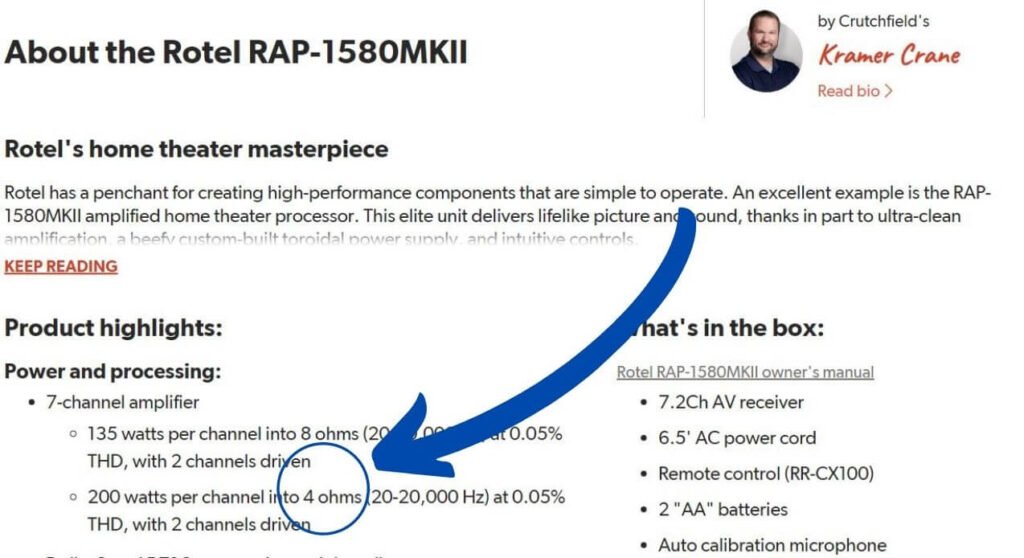
As you can see in the above image. I searched for a receiver on the Crutchfield site. They test every product and list its impedance. You can see that this particular receiver in the image is capable of driving 4 Ohms speakers per 2 channels.
Here you can connect 8 or 6 ohms, speakers, to it. There will be no speakers to cut out the issue but if you connect 2 ohms, speakers, to it then the issue will remain to be present there and it will harm the speakers too.
That is why it is advised to always connect higher impedance speakers, let’s suppose 8 ohms to lower impedance capable receiver of amplifier le supposes 4 ohms or 2 ohms.
Keep reading cause we usually make these simple yet annoying mistakes without knowing. Let’s discuss a few more of these.
Know the speaker placement in your theater room for the best possible experience. I have put so much quality work into this post.
Why do my speakers sound bad at high volumes?
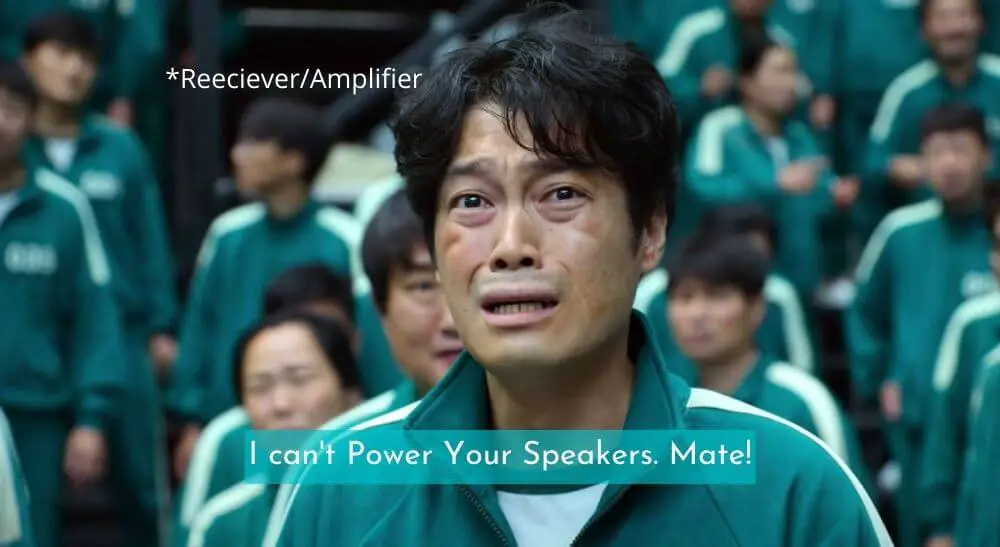
In-Short: When the receiver or amplifier is not capable of delivering the required power at a high volume then the speakers will sound bad. As soon as the speakers’ volume increases they suck more power out of the receiver.
In-Depth: When the receiver is not capable of satisfying the speakers’ demand for high power on high volume then they will distort.
Another reason is that the speakers are of bad build quality. Their drivers are not capable of coping up with your volume needs. That’s why I always recommend having the best speakers from reputable brands at your disposal.
How do I know if my audio is clipping?
In-Short: If you are hearing small blasts of pop sound like popcorn popping then you must realize that your audio is experiencing clipping.
In-Depth:
What is clipping?
Clipping is when the amplifier tries to output more power than it is capable of then it will send rough frequencies to the speakers. This is called clipping when the speakers used to get smooth frequencies now they are getting rough due to the amplifier trying hard to impress them with huge power which it is not capable of.
What does Clipping do to my speakers?
When the clipping is happening and the speakers are getting rough frequencies then the speakers will get frustrated and frustration usually generates heat. Yes unfortunately frustration works the same both in human beings and speakers.
This generated heat will heat the internal circuitry and will damage the speakers. Their lifespan will be so short.
Know the best frequency crossover settings for your home theater speaker. Don’t forget to check my easy-to-follow table in this post.
How do you fix audio clipping?
In-Short: It is very simple. First, choose an amplifier or receiver that is capable of providing needed power to your speakers. Second, you must calibrate the speakers with the help of the auto-calibration mic that comes with almost all of the new receivers or with the help of an SPL meter.
In-Depth: Never try to crank up the volume of each speaker to the highest decibel possible on the receiver menu. Don’t do it for your satisfaction. Let the calibration mics or SPL meters set the preferred values for your speakers.
When you crank it up to the highest decibel value possible then the receiver will try to push power more than its capacity and it will cause clipping.
Know how often to replace your home theater speakers. Check the poll results in this post that I have conducted in a Facebook group.
Did you get something out of this speakers’ cutting-out guide? Hold On We Have Something Exciting To Share.
[the_ad id=”4771″]FAQs
Can too much bass damage speakers?
There are two answers to this question.
- One which almost every engineer will answer and that is yes it will damage it. Because speakers have voice coils and when a lot of current passes through for an extended time then it will create heat and it will damage the speakers. But this is true in a situation when you are constantly playing the same note bass over it.
- Another answer is no it will not damage it. Because we use speakers according to the receiver and amplifiers instructions and the receiver will never push the speakers to their limits. That’s why a high bass will never damage the speakers.
Why Bluetooth speaker cuts out at high volume
There will always be problems and errors with Bluetooth connectivity. Like the interference of radio waves with it and which will damage the connectivity and the speakers will cut out.
There might be anything between the connected device and speakers that will cause the audio out of sync. Or your device is no longer supported. These errors occur a lot with Bluetooth connectivity. The best thing will be to use HDMI wires and avoid Bluetooth connectivity.
Why do my speakers cut out when the bass hits?
This is because your amplifier is no longer capable of delivering the power needed for those bass notes to throw it out at you.
That’s why I always choose an amplifier that can deliver the needed power to the speakers at high bass.
Helpful Resources For The FAQs To Read More
- You may face many more problems like this in your home theater. Know about these common home theater problems from TheMasteSwitch Blog. (Resource for the third answer)


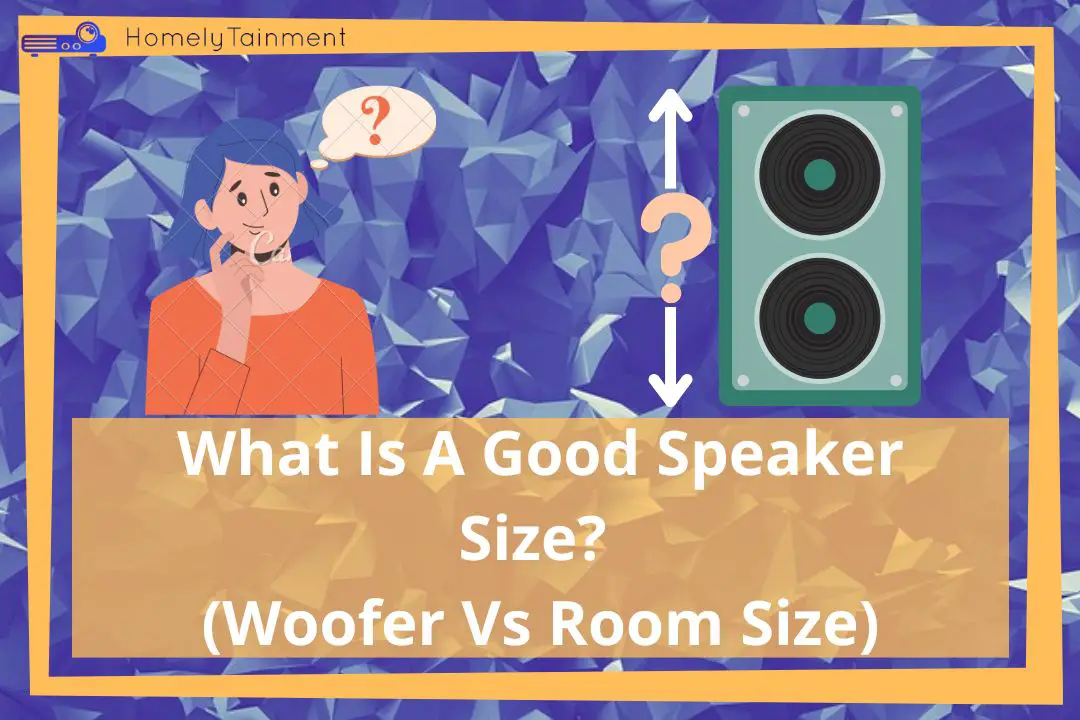
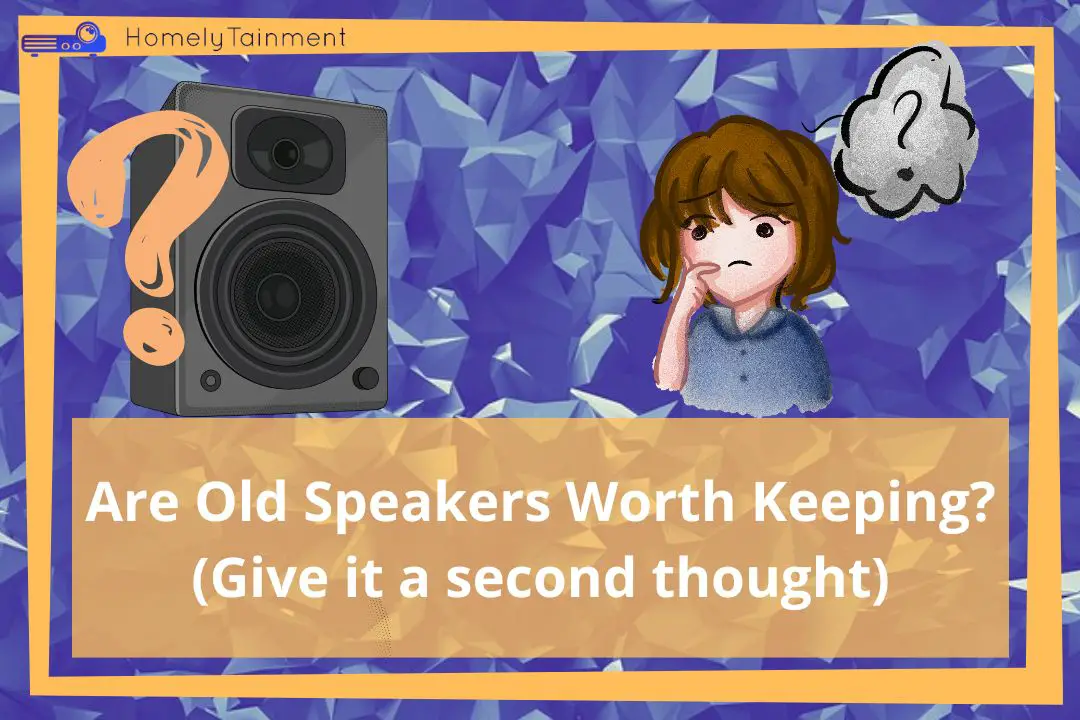

I have a RS-911A Fisher receiver when I put the volume up high it makes a cracking sound out from the speakers what could be the problem ?
Check the wires which are used to connect your speakers to the receiver. They might be facing internal damage or they are worn out. They will be responsible if you are pretty sure that you are providing enough impedance to your speakers and keeping the AV receiver away from other electronics along with the speakers.
I mean place the speakers and receivers away from other electronic devices.
Change the speakers’ wiring and consider better wires for connectivity. Always choose pure copper wires with suitable gauge sizes. Read the table data from my this article and you can choose a better wire. What Gauge Wire For Home Theater Speakers? (Chart Data)